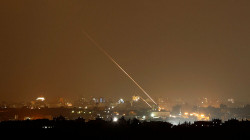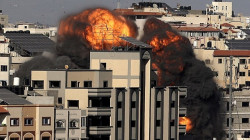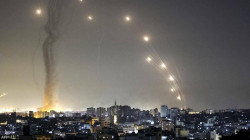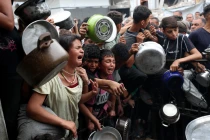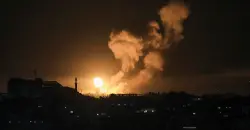Gaza conflict expands: Lebanon's first airstrike inside Israel in 50 years
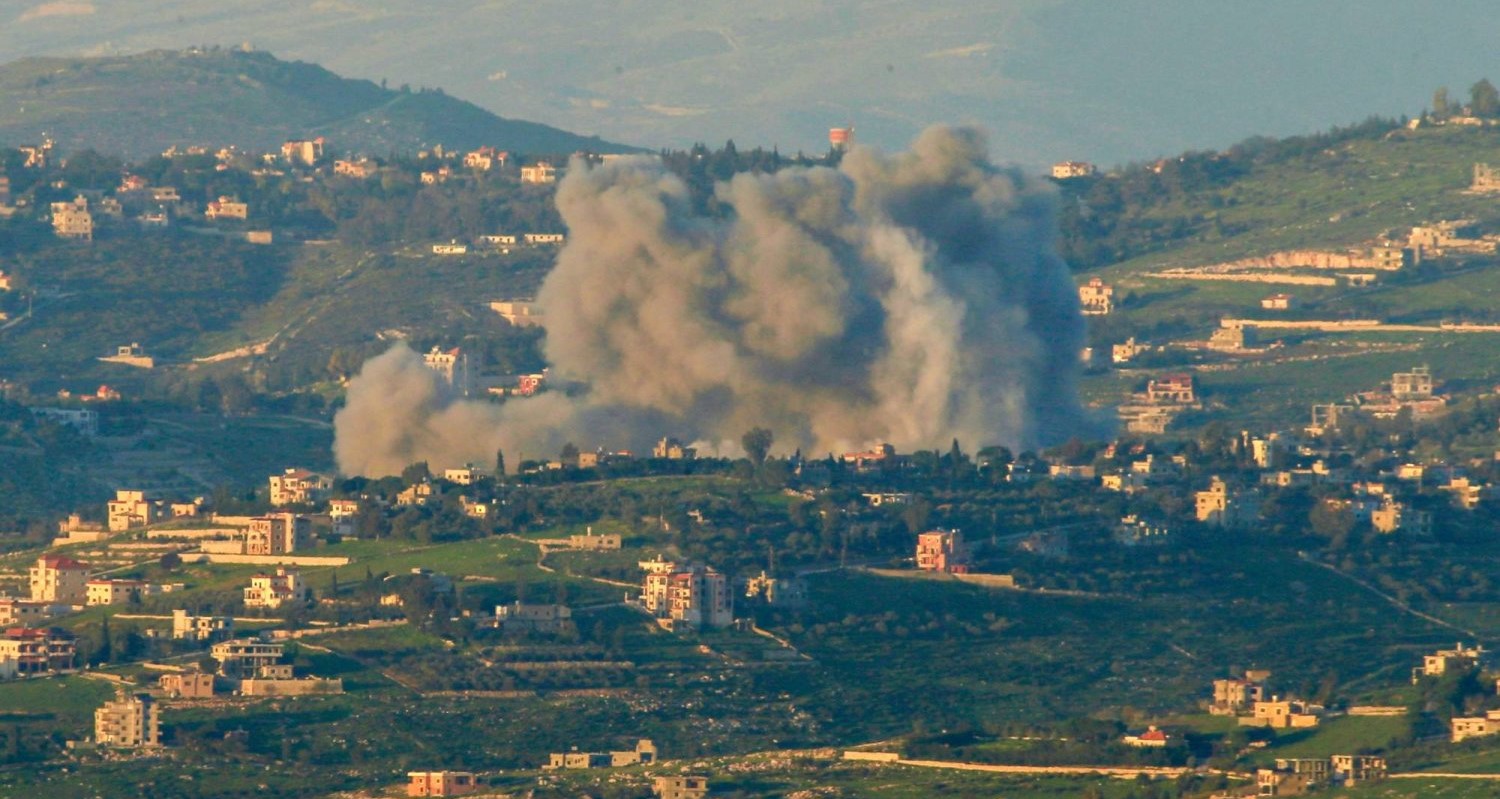
Shafaq News/ Tensions in the Gaza conflict are escalating, particularly since Israeli forces initiated their controversial military operation in Rafah. Observers have noted a shift in the nature of operations conducted by Lebanon's Hezbollah in recent days, including what is described as the first airstrike inside Israel in nearly 50 years.
There is growing regional concern that the ongoing Gaza war, which has lasted more than seven months, has entered a more dangerous phase with the start of Israeli operations on the Palestinian side of the Rafah crossing with Egypt. This operation has so far led to the displacement of approximately 400,000 people from Rafah.
Analysts assert that these concerns are well-founded as Prime Minister Benjamin Netanyahu's government has proceeded, albeit relatively quietly, with the invasion of Rafah despite repeated objections from the Biden administration. The U.S. administration has insisted on a clear Israeli plan to avoid significant harm to displaced civilians.
Since the Rafah assault began, regional tensions have intensified beyond the Gaza front, stretching from Lebanon to Iraq and Yemen.
War on Multiple Fronts
For instance, "The Islamic Resistance in Iraq" announced two days ago that it attacked "vital targets inside Israeli territory, in the Jericho Valley and Nevatim Airbase in Be'er Sheva, using upgraded Al-Arqoub (Cruise) missiles."
Additionally, the Houthi movement, known as "Ansarallah," declared yesterday that it had begun operations targeting ships associated with or dealing with Israeli ports in the Mediterranean Sea.
The Houthis announced they shot down an American MQ-9 drone on Thursday while it was conducting hostile activities over Marib province, marking the fourth such drone downed so far.
Simultaneously, Hezbollah, the "Islamic Resistance in Lebanon," reported on Thursday that it attacked the Metula site and its defenses with an armed drone carrying two S5 missiles. The drone launched its missiles at one of the site's vehicles and personnel, resulting in casualties, and continued its strike on the designated target with precision.
Hezbollah's Escalation
Lebanese experts and analysts described this attack to Shafaq News Agency as the first airstrike from Lebanon inside Israel in its history. It also marks the first airstrike inside Israel by an Arab state since the end of the October 1973 Yom Kippur War between Arab states and Israel.
Israeli airstrikes have intensified on villages near the border and have recently extended to Baalbek two days ago. Today, Israel launched an attack near Saida city, which is approximately 40 kilometers from the border, claiming to have killed a "senior commander" in Hezbollah's air force.
According to Lebanese military expert Omar Maarabouni, this incident marks the first time since the beginning of the Gaza conflict that Hezbollah has deployed "S-5" rockets. In this attack, two rockets were launched by a dual-role drone from the "Shahed" series, which can fire missiles and subsequently transform into an explosive suicide drone.
Experts estimate that the warhead on this type of drone weighs between 25 and 30 kilograms of high explosives. Although Hezbollah has not revealed the specifications of the drone used in this operation against the Israeli site near the Lebanese border, it is likely a medium-sized drone. This conclusion is drawn from the length of the "S-5" rocket, which is 1.5 meters. The S-5 is a model of highly explosive Russian rockets that operate on solid fuel.
Hezbollah's recent attack was consistent with the nature and type of assaults it has been carrying out over the past few days.
Yesterday, Thursday, Hezbollah announced that in response to Israeli attacks on industrial facilities in the Bekaa region—geographically distant from the traditional border conflict zone—the resistance launched a drone strike on industrial facilities affiliated with the Israeli Ministry of Defense. The target was Elbit Systems' "David Cohen Factory" in northern Kiryat Shmona, near the border, specializing in producing electronic systems for the Israeli military. The strike reportedly hit its targets with precision.
These attacks followed an operation two days prior, which both Hezbollah and Israeli media confirmed, involving the downing of an advanced surveillance balloon over the Adamit base in western Galilee. According to footage released by Hezbollah, the multi-faceted and sequential attack targeted the balloon's launch base, its control mechanism, and its crew, resulting in casualties. Hezbollah distributed a video confirming the details of this operation.
A Deterrent Message
Observers noted that in the recent attacks, including the downing of the balloon, the "Axis of Resistance" attempts to send a deterrent message. This comes in response to Israeli Prime Minister Benjamin Netanyahu's threats to initiate an operation in Rafah, irrespective of its humanitarian or regional consequences.
Observers also highlighted Hezbollah's increased use of advanced "MASS-3" television-guided missiles in Lebanon, along with an intensified deployment of suicide drones.
Following the initial phase of the confrontation over the past months, during which Hezbollah utilized locally-made "Burkan" rockets—short-range but with a substantial explosive capacity of up to 50 kilograms—to target Israeli forces and their gatherings in northern "Israel," the group recently introduced a new weapon. For the first time, Hezbollah has deployed "Jihad Mughniyeh" rockets, heavy missiles with an explosive power of 120 kilograms.
These rockets are named after Jihad Mughniyeh, the son of Hezbollah's senior military commander Imad Mughniyeh, who is believed to have been assassinated by Israel in Damascus in 2008. Israel also killed his son Jihad in the Quneitra region of Syria in 2015.
According to Hezbollah, these new, more destructive rockets were used to attack the Zibdin site in the Shebaa Farms area of southern Lebanon, which Israel occupies.
